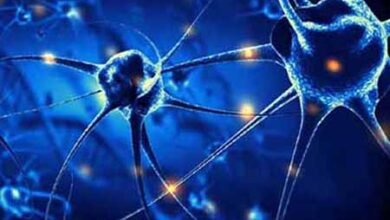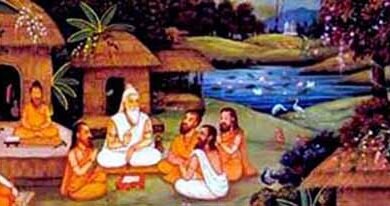
भौतिकी से संबंधित-138.
| 1. What is the SI unit of resistance? = Ohm (Ω).
2. What is the unit of electric potential? = Volt. 3. AC dynamo or generator electrical works on the principle of which induction? = Electromagnetic induction. 4. In doubling the distance between two charges, the force between them becomes = One fourth of its original value. 5. Resistance of conductor when heat increase in temperature? =Increases. 6. Resistance of semiconductor on increasing temperature? =Decreases. 7. Fuse is based on which principle of electricity? = Heating effect. 8. What is the unit of volume of charge? = Coulombs per cubic meter. 9. What is the SI unit of Young’s elasticity coefficient? =Newton / m2 10. Whose law is the result of energy conservation? =Lenz’s law. 11. By which extremely low resistance is measured? = Kelvin bridge/Megger. 12. If the resistances of 15Ω, 20Ω and 30Ω are in parallel, then their resistance will be equal? = 60 / 9Ω. . 13. Which concept confirms the first law of thermodynamics? = Law of conservation of energy. 14. If a lift is moving at the same velocity, the weight of the person in it? =Will remain unchanged. 15. Kerosene keeps climbing upwards in the lantern light, why? =Surface Tension. 16. Do small pieces of camphor dance on the surface of water? =Surface Tension. 17. Two vectors that have different values? =Their result cannot be zero. 18. Which property of liquids, due to which it opposes the motion occurring in its various layers, is called? = Viscosity. 19. Transformer is used? = Change AC voltage levels. 20. According to which principle does the electric motor work? = Faraday’s rules. 21. The frequency fluctuations of a sound source are called? =Doppler Effect. 22. A stationary magnet always reflects? =North-North and South-South. 23. Which principle works in the atomic bomb? =Nuclear Fission. 24. What is a dry cell? = Primary Cell. 25. According to Newton’s second law of motion? =The definition of force is known. 26. When 1 kg of a liquid changes from liquid to vapor at its boiling point, what is the heat absorbed in it called? = Latent heat of Vaporisation. 27. What is Decibel (db)? =Measurement of a sound level. 28. The wavelength of light greater than the wavelength of red is called? =Infrared. 29. Why does a thin layer of oil appear colored on a water surface? =Interference. 30. What causes rainbows to form? = Refraction, Reflection & Dispersion. Dr. (Pro.) Amrendra Kumar. ========== ========== =========== 1. प्रतिरोध का एस.आइ.मात्रक होता है? = ओम (Ω). 2. विद्युत विभवान्तर का मात्रक होता है? =वोल्ट. 3. ए.सी.डायनेमों या जनरेटर विद्युत किस प्रेरण के सिद्धांत पर कार्य करता है? = विद्युत चुम्बकीय प्रभाव . 4. दो आवेशों के बीच की दूरी दुगुनी करने में उनके बीच का बल हो जाता है? =चौथाई. 5. ताप बढ़ने पर चालक का प्रतिरोध? =बढ़ता है. 6. ताप बढ़ने पर अर्द्धचालक का प्रतिरोध? =घटता है. 7. फ्यूज विद्युत के किस सिद्धांत पर आधारित होता है? = उष्मीय प्रभाव. 8. चार्ज की मात्रा की इकाई होती है? = कूलम्ब प्रति क्यूबिक मीटर. 9. यंग प्रत्यास्थता गुणांक का SI मात्रक है? = न्यूटन /मी 2 . 10. किसका नियम ऊर्जा संरक्षण का परिणाम है? = लेंज. 11. किसके द्वारा अति निम्न प्रतिरोध को मापा जाता है? =केल्विन ब्रिज / मेंगर. 12. 15Ω, 20Ω तथा 30Ω के प्रतिरोध समांतर क्रम में लगे हैं, तो इनका तुल्य प्रतिरोध होगा? =60/9Ω. 13. ऊष्मा गतिकी का प्रथम नियम किस अवधारणा की पुष्टि करता है? =उर्जा संरक्षण. 14. एक लिफ़्ट एक समान वेग से ऊपर जा रही हो तो, उसमें स्थित व्यक्ति का भार? =अपरिवर्तित रहेगा. 15. लालटेन की बत्ती में मिट्टी का तेल बराबर ऊपर चढ़ता रहता है, क्यों? =पृष्ठ तनाव. 16. कपूर के छोटे-छोटे टुकड़े जल की सतह पर नाचते हैं? = पृष्ठ तनाव. 17. दो वेक्टर जिनका मान अलग है? =उनका परिणाम शून्य नहीं हो सकता. 18. द्रवों का वह गुण, जिसके कारण यह अपनी विभिन्न परतों में होने वाली गति का विरोध करता है, उसे? =श्यानता. 19. ट्रान्सफार्मर का प्रयोग किया जाता है? = प्रत्यावर्ती वोल्टेज के बदलाव को समान रखने के लिए. 20. विद्युत मोटर किस सिद्धान्त के अनुसार कार्य करती है? =फ़ैराडे के नियम. 21. किसी ध्वनि स्रोत की आवृत्ति में होने वाले उतार-चढ़ाव को कहते हैं? =डाप्लर प्रभाव. 22. एक स्थिर चुम्बक हमेशा दर्शाती है? =उत्तर-उत्तर तथा दक्षिण-दक्षिण. 23. परमाणु बम में किस सिद्धान्त कार्य करता है? = नाभिकीय विखण्डन. 24. शुष्क सेल होता है? =प्राथमिक सेल. 25. न्यूटन की गति के द्वितीय नियम के अनुसार? =इससे बल की परिभाषा ज्ञात की जाती है. 26. जब किसी द्रव की 1 किग्रा मात्रा अपने क्वथनांक पर द्रव से वाष्प में परिवर्तित होती है, तो इसमें अवशोषित होने वाली ऊष्मा को क्या कहते हैं? =वाष्पीकरण की गुप्त ऊर्जा. 27. डेसीबल होता है? =एक ध्वनि स्तर का मापन. 28. लाल रंग की तरंगदैर्ध्य से अधिक तरंगदैर्ध्य के प्रकाश को कहते हैं? =अवरक्त. 29. जल सतह पर तेल की पतली परत रंगीन क्यों दिखाई देती है? =व्यतिकरण. 30. इंद्रधनुष किस कारण से बनता है? = अपवर्तन, परावर्तन और परिक्षेपन. डॉ. (प्रो.) अमरेंद्र कुमार.
|





